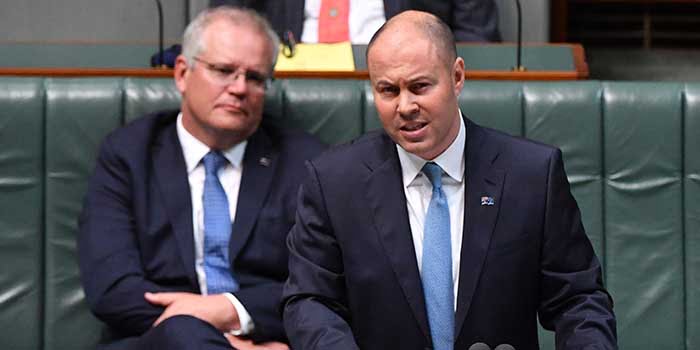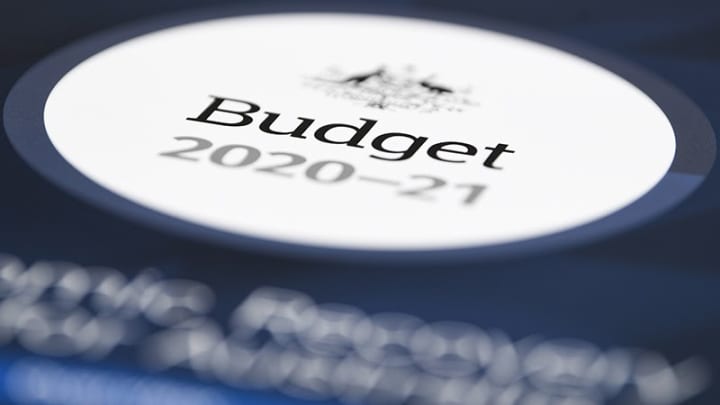Better late than never, the Federal Budget for 2020 was handed down by Treasurer Josh Frydenberg earlier in the week. With the key focus being to stimulate a struggling economy, the government has comes to grips with the massive deficit that continues to grow as COVID-19 remains a threat at home and overseas.
The 2020 Budget contains a variety of measures across taxation, superannuation, social security and aged care that will affect every Australian should they come into legislation. We’ve pulled out the key takeaways and measures to keep an eye on moving forward.
Boost to mental health care
Frontline mental health services will get a healthy boost totalling $92.4 million, which includes $33.8 million for Lifeline, $10.5 million for beyondblue and $2.2 million for defence force reservists. The Royal Flying Doctor Service will also receive an $84 million package with the bulk of it dedicated to mental health programs.
There’ll also be an extra $11.5 million for 1800 RESPECT – much of that is earmarked for specialist trauma counsellors who can help survivors of domestic violence.

Tax threshold changes brought forward
The government already has plans in place to amend the personal taxation thresholds for FY2021/22, however, the Budget has proposed to bring those changes forward – good news for those who want to drop down a tax bracket.
Under the proposed thresholds moving forward would see individuals earning between $45,001-$120,000 per annum paying a tax rate of 30 per cent (previously 32.5 per cent for individuals earring between 37,001-90,000). Those earning between $120,001-$180,000 would continue to pay a rate of 37 per cent.
The key takeaway here is that individuals earning more than $90k but less than $120k would drop down a tax bracket. If the proposal passes legislation, there would be a retrospective adjustment for wages paid in this year to date to correct the tax withheld. For most employees this should result in a refund of overpaid tax.
JobMaker plan
The Government’s $74 billion JobMaker Plan is a key element of the Government’s Economic Recovery Plan for Australia. The plan forms part three in the process of supporting Australians through one of the toughest periods in our economic history, following JobSeeker and JobKeeper. It’s designed to support a stronger economic recovery and bring more Australians back to work.
The JobMaker Plan aims to boost economic growth, create jobs, invest in our future industries and skills, remove red tape, guarantee essential services and restore confidence in a stronger recovery.

Consolidating super to become automated
For individuals who are currently holding multiple superannuation accounts and haven’t found the time to marry them all together in one place with a fund that aligns with their values, we’ve got good news. From July next year the Australian Taxation Office will be able to do it for you.
All inactive funds worth less than $6,000 will get transferred to the ATO, who will then try and match it up with any active super accounts. Holding multiple accounts means you’re paying multiple sets of fees, which can ultimately eat away at your retirement nest-egg. The Government plans to cap annual fees at three per cent for funds worth $6,000 and less.
Small Businesses can claim-back future loses
SMEs with an aggregated turnover of less than $5 billion can apply tax losses against taxed profits in a previous financial year, generating a refundable tax offset in the year in which the loss is made. This means eligible businesses are able to claim a refund as far back as FY2018/90 to offset taxed profits, rather than the current arrangement of carrying losses forward.
Other key figures and funding boosts
- The instant asset write-off limit has been raised to $30,000 for business with an annual turnover of up to $50 million
- Additional support to financial regulators in the wake of the Banking Royal Commission
- 80,000 new apprenticeships will become available for individuals taking on a new trade or entering the workforce
- 42 billion has been designated to building a fast-rail service between Melbourne and Geelong
- $6.3 billion will go to drought support, $3.9 billion to natural disaster recovery efforts and $3.3 for those affected by flood
- Schools will receive $300 billion for upgrades and and $453 million will be used to extend pre-school education
- $80 billion will be designated for creating better access ti life-changing equipment, services and medicine
- $160 million is to go towards research for improving the health of Indigenous Australians
- A Climate Solutions Package worth $3.5 billion will be employed to reduce our impact on the environment and a further $100 million will be designated to an Environment Restoration Fund
A full overview of the Federal Budget 2020-21 can be found on the government website: budget.gov.au

